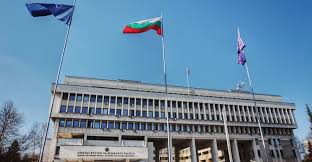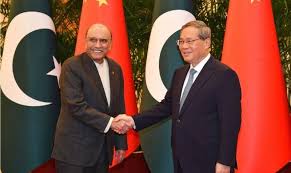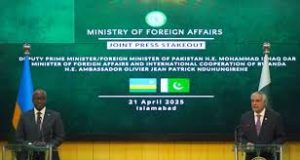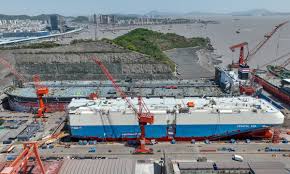Bulgaria among EU countries asked by US about possible participation in security efforts in Ukraine

Sofia: Bulgaria’s Ministry of Foreign Affairs has confirmed that Bulgaria has received questions about its possible participation and support for security efforts in Ukraine.
Six questions have been sent, via the US embassy in Sofia and Bulgaria’s permanent representation to Nato.
The questions include which countries could contribute to the guarantees to Kyiv, whether they would be ready to deploy troops in Ukraine as part of a peace solution, as well as what the size of the possible European-led force should be, Bulgarian National Television reported, citing the Foreign Ministry.
These questions have been sent to all capitals of European Union countries.
The Foreign Ministry pointed out that a decision on sending Bulgarian military personnel abroad is the exclusive prerogative of the National Assembly.
The ministry said that Bulgaria’s firm position was that Ukraine must receive clear and reliable guarantees for its security and must itself participate in the negotiations for its future.
The European Union must also be present at the negotiating table, as a natural ally of the United States.
It is of key importance that the EU and Nato remain united in support of Ukraine and demonstrate leadership, the ministry said.
Head of state President Roumen Radev, speaking on February 18, expressed firm opposition to deploying Bulgarian military personnel to Ukraine.
“If you remember, the big question I raised at the beginning of the war in Ukraine was not to allow Bulgaria to be involved in it,” Radev told reporters.
“Today, against the backdrop of the collapsing global security architecture, this question is even more relevant. As the Commander-in-Chief, I am categorically opposed to Bulgaria sending troops to Ukraine in any form. I expect the government and the National Assembly to state a clear and unambiguous position that Bulgaria will not send troops,” he said.
Boiko Borissov, former prime minister and leader of GERB-UDF – the majority partner in the coalition government and Parliament’s largest group – said that Bulgarian military personnel would not be sent to Ukraine.
“A year ago, I said that a Bulgarian soldier will not set foot in Ukraine. I am glad that President Radev took the same position today. Tonight, at the joint governance council, we will ensure that all parties in the ruling coalition support this decision of ours. Bulgarian soldiers will not die for foreign soil and will not participate,” Borissov told a news conference on February 18.
Borissov said that this position in no way means that Bulgaria does not support Ukraine in its reconstruction and will continue to participate in all forums that will contribute to peace.
Regarding financial support, he was categorical that there are European funds, there is also money for the reconstruction of Ukraine: “We will participate in solidarity with everyone, but money from our budget will not go in this direction.”
Nikolai Denkov, former prime minister and co-leader of Parliament’s second-largest group, the opposition We Continue the Change – Democratic Bulgaria coalition, said that the sending of Bulgarian soldiers to Ukraine never had been discussed in any way.
“There is a decision of the National Assembly, we provide only military-technical assistance. We need to calm people down, there is no change in this regard and as long as military actions are being conducted, there will be no change in this position,” Denkov said.
“If a peace treaty is reached, if there are no military actions, then it already makes sense to discuss what will happen and this will be discussed in the National Assembly. The National Assembly is the only one that has the right to discuss and make decisions on this issue,” he said.
There is no way to achieve lasting peace without Europe getting involved in ensuring this peace. It is a complete illusion for anyone to think that they will achieve a peace treaty without Europe’s participation, Denkov said.
Deputy Prime Minister and Bulgarian Socialist Party leader Atanas Zafirov said that the Cabinet had not discussed the hypothesis of Bulgaria’s possible participation with peacekeeping forces in Ukraine.
“I have no idea what provoked these words of the President. There is no such hypothesis and there is no such discussion in the Council of Ministers. And I don’t see what has changed for us to discuss such possibilities,” Zafirov said.
Deploying Bulgarian military personnel in Ukraine was also opposed in statements on February 18 by both factions of the Movement for Rights and Freedoms.





